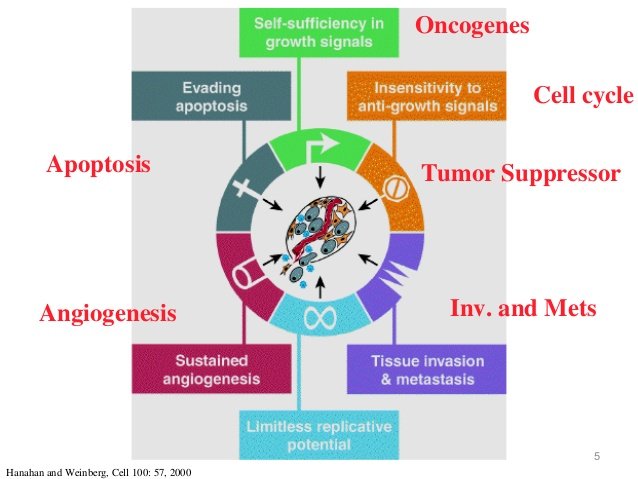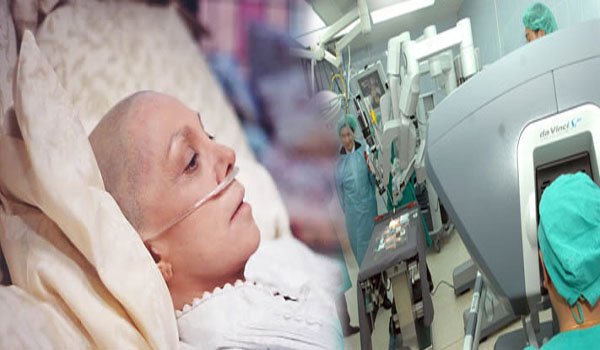Let me start from my own experience, my grandfather who was only 61 years old, who was never into alcoholism or smoking or any kind of addiction, who was health conscious and avoided dust, smoke in every possible way he could, had lung cancer. Surprising right? Because we have the general perception that smoking, exposure to the dust causes the lung cancer. But, it is not always the case he passed away five months back but its still difficult to get over that lost, the unexpected turn over our lives took, the game that time play with us.
“The most dreadful thing about the cancer is the transformation.” You see a self-made, strong, independent, positive personality having no option rather than lying in bed, completely hopeless and going through the pain brought about by the chemo therapies, suffering alone and dealing with the changes. And its even more painful to watch someone nearest to your heart going through it and you being completely helpless. So, what actually is cancer? Robbins describe neoplasm(tumor/cancer) as “An abnormal mass of tissue, the growth of which exceeds and is uncoordinated with that of the normal tissues and persist in the same excessive manner after cessation of the stimuli that evoke the change”
Our body is made up of around 3.7 trillion cells. These cells have specific pathway of growth, division and death. When these cells uncontrollably grow and grow and do not die this results in the cancer. Thus, these cells then attack the vital organ (intestine, lung, brain, kidney, liver) and interferes with the normal functioning.
Generally, cancer can be divided in to benign and malignant. Benign means localized, usually small, slow growing lumps that do not invade the surrounding tissue and do not spread. Malignant actually cancer in general sense. And, which means usually large, rapidly growing mass of cell, that invades surrounding tissue and frequently spreads to the distant sites. So, not all lumps or any kind of mass you see is cancerous. Some can be benign that can be fully treated.
What causes cancer?
There is no specific cause of cancer. Several factors are there that when interact with each other can cause cancer. Age, geographic factor, environmental factor, dietary habit, microorganism, exposure to the chemical, radiation are some factors.
Age: With the progression of age, exposure to the environmental hazards cause the cumulation of change in basic code in DNA which pull the cell for unstimulated growth which means cancer.
Geographic factor: Studies shows that the stomach cancer in Japan and the Lung cancer in USA are more prevalent.
Environmental factor: Alcohol and smoking increase the risk of cancer of mouth and pharynx, Larynx, esophagus, pancreas, bladder etc.
Dietary habit: Spicy, junk food, hydrogenated oil, red meat, processed meat etc. are risk factors for cancer.
Microorganism: Chronic infection of microorganism like bacteria, virus and fungi increase the risk of cancer. For e.g. Helicobacter pylori(bacteria) causes stomach cancer, Human papilloma virus causes cervical cancer.
Molecular basis of cancer:
There must be chemical message which is detected by receptors in the cells which cause cascades of changes and finally cause the replication of DNA and eventually cells divide. Any mutation that change in DNA sequence which causes uncontrolled growth, prevents cell death and system repairing the mutated DNA results in cancer.
Four classes of normal regulatory gene for cell division:
i. Genes that promote growth of cell (protooncogenes, eg. Ras)
ii. Genes that inhibit growth of cell (tumor suppressor gene, eg. RB, P53)
iii. Genes that regulate the cell death (eg. Bcl-2, myc)
iv. Genes that repair the DNA (eg. BRCA-1, BRCA-2)
These genes help to avoid the cancer or abnormal growth of cell but during cancer, these genes are inhibited and the uncontrollable growth begins.

(slideshare.net)
Treatment:

It is not that person dies of cancer. Some cancer can be treated as well. The survival rate of some cancer is high. The treatment depends upon type of cancer and how advance it is. Combination of therapy can be used such as; surgery with chemotherapy and/or radiotherapy.
Chemotherapy:

Chemotherapy is the most common treatment of cancer. It can either cure or prolong the life/ reduce symptoms. Most commonly used anticancer drugs are Methotrexate, Cyclophosphamide, Cisplatin etc. These drugs also have several common side effects like diarrhea, alopecia (hair fall), decrease in wbc count, stomatitis etc.
References
Robbins and Cotran Pathalogic basis of diesease
slideshare.net
https://www.mayoclinic.org/diseases-conditions/cancer/symptoms-causes/syc-20370588

@bio-tech sorry to hear about your grandfather. Cancer is a complicated topic and you have contributed a great overview. Douglas Hanahan and Robert A. Weinberg wrote an amazing perspective in Cell in 2000 and I am happy to see that you have a figure from their original article. In 2011 they wrote a follow up review and I encourage you to read it if you haven't already. It is one of the most read reviews on cancer. As you mentioned, chemotherapy is the most common treatment of cancer. But there are targeted therapies and personalized medication based on the individual cancer. In the near future genome sequencing of tumours will be common and drugs aimed at targeting the underlying cause (eg. which oncogenes are active or which tumour suppressor inactivated) will be used more often than generalized chemotherapy.
Thank you for your kind and fruitful comment. In the reviewed article, it has stated two more emerging hallmarks that are evading immune destruction and reprogramming energy metabolism based on Otto Warburg concept of “aerobic glycolysis” which are beautifully explained in it. Therapeutic intervention based on the immunologic study of cancer has become the field of great interest for the researcher as well as a pharmacist. Although recent immunomodulatory therapy has promise the less side effect and efficacy it has of less use because this is less affordable for long run especially in the less developing country like Nepal. As you mentioned specific mutation and target based chemotherapy are practice in the recent year. Let's hope better newer drugs will be synthesized in near future for cancer treatment.
Welcome!
Thank you!!!
Include nano-particles for cancer treatments in your next article. It will be interesting to read too. Good Post!
Thank you for your comment and suggestion.
Sure, I will write a separate post for cancer treatment only.